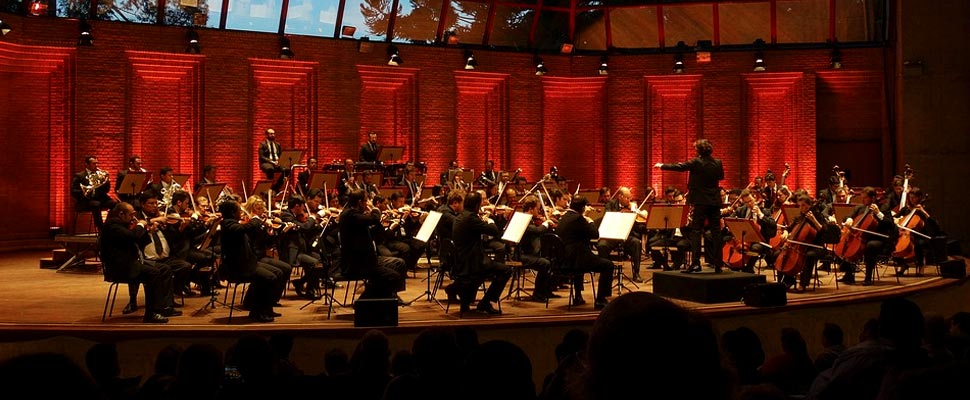Don’t know where to start with classical music?
Classical music can be overwhelming at first, we give you some recommendations .

Follow these recommendations to enjoy classical music. / Photo: Pixabay
LatinamericanPost| Luis Angel Hernández Liborio
Listen to this article
Leer en español: ¿No sabes por dónde empezar con la música clásica?
If you have already decided to start listening to classical music, you may have encountered the problem of where to start. If you go to record stores or put "classical music" on YouTube, you will find that there is so much music that it could overwhelm you. It is actually easier than it seems, we will give you some recommendations so you can start enjoying it and be sure that you know what you are listening to.
What is classical music?
The first thing we have to say is that the term "classical music" has mainly two meanings: the first refers to the totality of music that is considered "cultured", "academic" or of "high aesthetic value" , the term is not completely clear, nor perfect, therefore it is subject to frequent debate about its suitability, as highlighted by the magazine Antwerp . The second meaning of "classical music" refers to works produced between approximately 1750 and 1810, a period in the history of music that has been called classicism. Does this sound familiar to you? It is the Mozart period. For this article when saying "classical music" we mean the first meaning.
You can also read: Piazzolla and Vivaldi: the Four Seasons, a solstice recommendation
If you start listening you will notice that there are many works that do not have much to do with each other, if you listen to something by Bach and then something from Stockhausen you will notice this difference. This is because they belong to different periods. Just as we divided universal history to understand it better, music has also been divided into periods that help us locate and understand it better. You can find the Middle Ages, the Renaissance, the Baroque, the Classicism, the Romanticism and many other divisions in the history of music. If you listen to works from the same period, you can find similarities and better understand their characteristics.
Why listen to classical music?
There are many reasons why people often start listening to classical music, the most common are:
- Curiosity
- Recommendation
- General culture
- By obligation: As part of school or academic activities.
No matter what is the reason you want to start listening to it, music is one of the fine arts and it is important to know it. According to Yahoo! News many studies claim that classical music has benefits to people's mental and physical health. The famous Mozart effect is one of them and regardless of whether it is real or not, many people listen to his music around the world.
You can also read: The Mozart effect and your children's homework
Some tips to get started with classical music
Use a book: There are many books that are made to be a guide for those who begin to listen to classical music, we recommend How to listen to the music of Aaron Copland. A book that will help you understand the basic concepts of music, composers, works, periods, etc. This will allow you to understand what you are listening to and you can do it step by step. Other books that can help you are music history books and biographies, if you have a favorite period or composer reading about them may help you better understand the works, it could even change your perspective on them.
"Cómo escuchar la música", de Aaron Copland. pic.twitter.com/WhE31FZbjJ
— Julieta Ovalle (@julietaovallep) April 6, 2020
Go to educational concerts: These concerts are dedicated to children in their majority, but they are suitable for all ages. In them the names, timbres and functions of each instrument are explained, they speak of composers and works made in order to educate. Three good examples of these works are: Peter and the Wolf by Sergei Prokofiev and The Carnival of Animals by Camille Saint-Säens, where each character in the story is represented by an instrument. The other example is Benjamin Britten's Youth Orchestra Guide , where a theme by Henry Purcell is played by the different sections of the orchestra.
Don't start listening to random music: Maybe someone with good will shared with you a Spotify list of 500 works, but you can't relate to them or understand them. To better understand each period of music and identify the differences between them, it is better to listen to works from the same period. "Knowing the period to which the composers correspond helps not to get lost in the twists and turns of classical music" says the newspaper El Tiempo in an article dedicated to the subject.
Enjoy: This is the most important part, so much information may seem overwhelming, but don't forget to enjoy what you hear. Surely you will find a period of music or a composer that you like more than another. It seems like a lot of work but that is what will allow you to enjoy and understand music better, that does not mean that if you do not do all of the above you will not enjoy it, but I assure you that the experience will be different.




